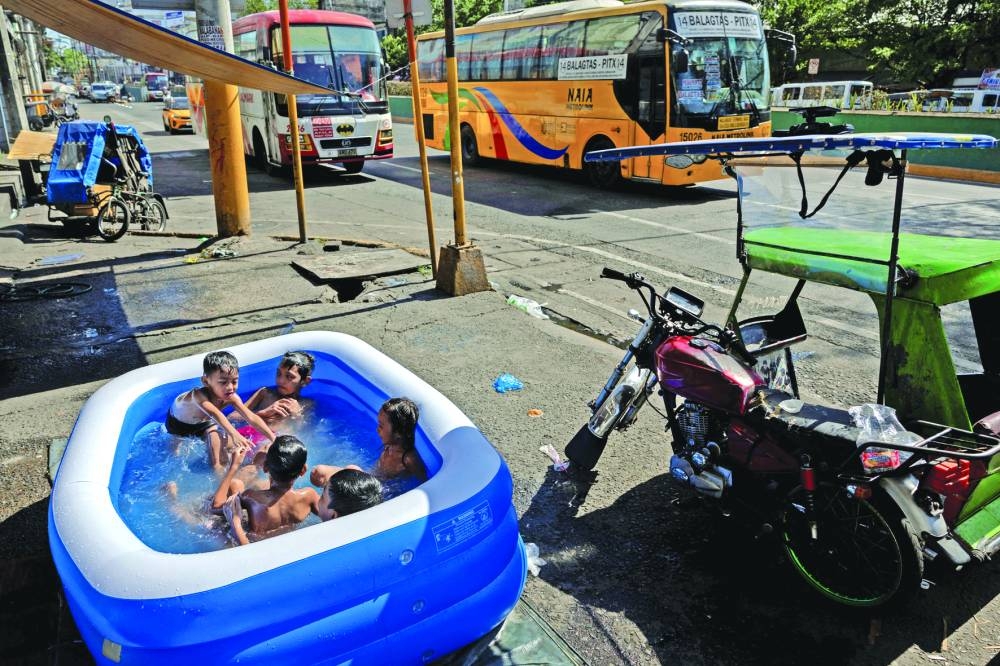The Philippines has closed schools down and warned of overloading on its power grid, as authorities across Southeast Asia issued a series of health alerts for a crushing and deadly heat wave.
The Philippines’ country’s education ministry cancelled in-person classes at public schools for two days on Sunday.
“We already have reports of high blood pressure and dizziness, and fainting for pupils and teachers in the past days,” Benjo Basas, chairperson of Teachers’ Dignity Coalition, a group of educators, told DWPM radio station.
Temperatures in the Philippines are forecast to reach 37° Celsius (98.6° Fahrenheit) in the next three days, with many classrooms crowded and without air conditioning.
The country’s weather agency said the heat index – the actual temperature felt by the body to include relative humidity – is expected to remain at a record 45C (113F), in the range which it classes as “dangerous” as conditions can trigger heat stroke from prolonged exposure.
In Thailand, temperatures are forecast to surpass 40C in Bangkok and the country’s central and northern regions with the meteorological agency advising people to avoid being outdoors for extended periods.
Temperatures soared to 44.2C in the northern city of Lampang on April 22, with the meteorological department saying on Monday that it expects the extreme heat will continue this week.
In the past month, 30 have died from heat stroke, data from Thailand’s health ministry showed.
People are seeking respite from the heat in air-conditioned shopping malls in Vietnam’s business hub Ho Chi Minh City, state media reported, with the country’s national weather agency warning of risks of forest fires, dehydration, and heat shock.
Maximum temperatures measured in several parts of northern and central Vietnam ranged from 40.2C and 44.0C the agency said on Sunday, adding that temperatures won’t subside until the middle of the week.
Malaysia’s meteorological department issued hot weather warnings on Sunday for 16 areas that have recorded temperatures between 35C and 40C for three consecutive days.
A total of 45 cases of heat-related illnesses have been reported in the country as of April 13, the health ministry said, without specifying when it began tracking the cases.
Two deaths due to heat stroke have been reported, the ministry said in a statement.
In the neighbouring city state of Singapore, the meteorological service said the country’s temperatures could soar higher in 2024 than last year, which was Singapore’s fourth-warmest year since records began in 1929.
Singapore’s hottest day recorded was May 13 last year when the highest daily maximum temperature hit 37C.
Since last month some schools have relaxed rules on uniforms to allow students to wear more comfortable physical education attire amid the persistent heat. – Reuters

Children swim in an inflatable pool during a hot day in Manila.
